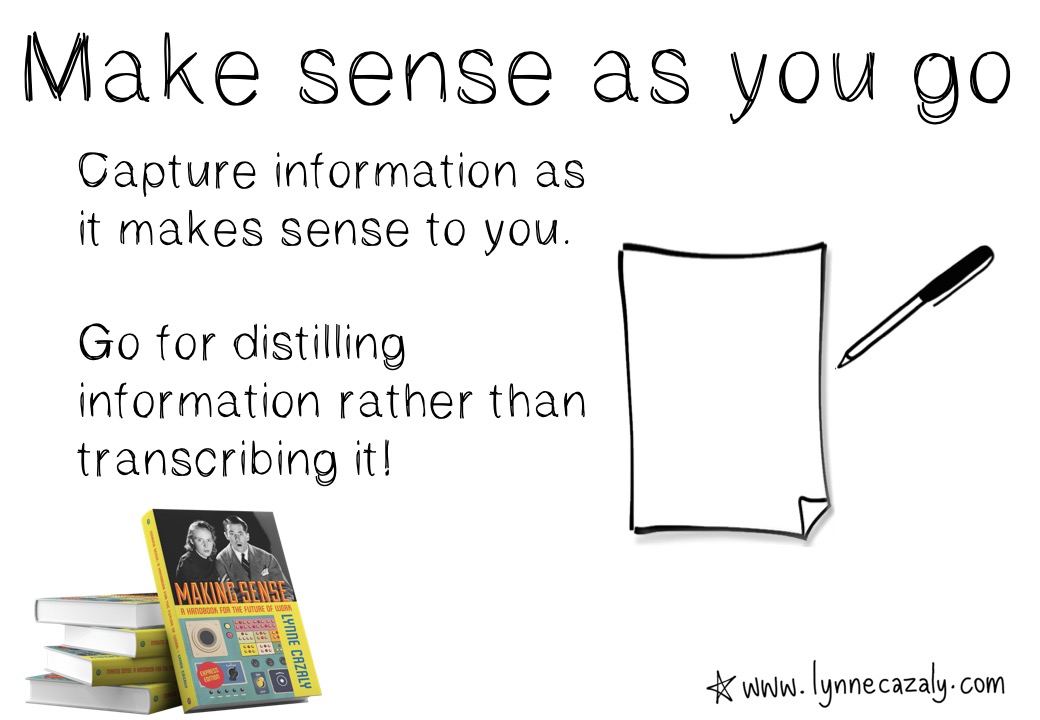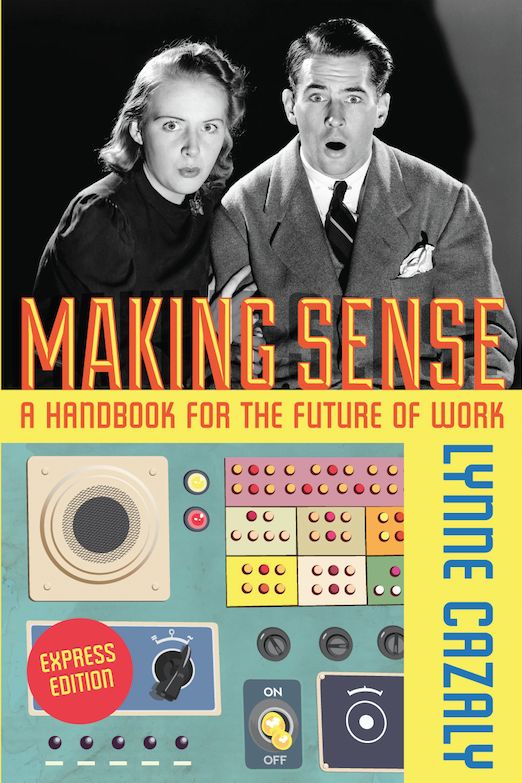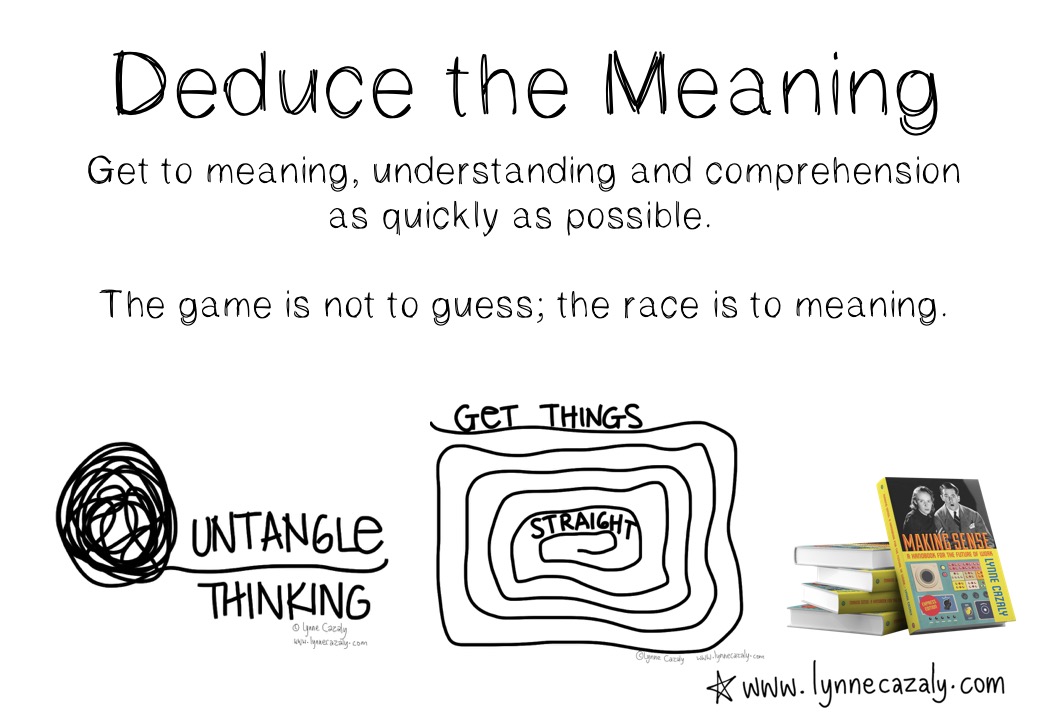How we confuse ourselves
 Friday, December 20, 2019 at 8:30AM
Friday, December 20, 2019 at 8:30AM  In a meeting recently I saw a colleague write up more than 5 pages of notes. The next day they said how confused they felt about it all.
In a meeting recently I saw a colleague write up more than 5 pages of notes. The next day they said how confused they felt about it all.
What were all the notes about then?
Sometimes we can capture content others are delivering, thinking we’re doing well, getting all of that information down. But it can end up meaning nothing to us later. We don’t seem to be able to find what the key points were or what the essence of it was.
As I chatted with my colleague later and we reviewed their notes, they were words, phrases, things underlined. These were the key things they heard. But later, none of it really made much sense. There was no synthesis, distilling, connections or conclusions. The notes were parts of sentences.
In sensemaking, it helps to pause, listen, make sense of what’s going on, and write that down. It is habit (and fear) that drives us to write it all down like a court reporter! But we don’t need to write it all.
So make sense as you go, capture information as it makes sense to you.
Go for distilling information rather than transcribing it!





















